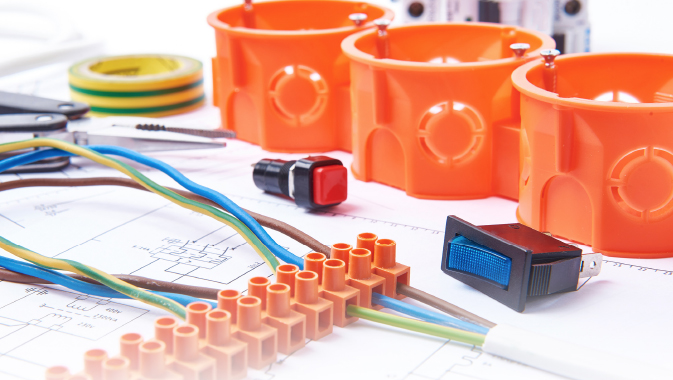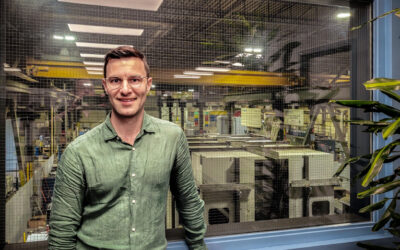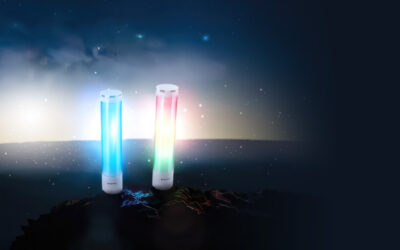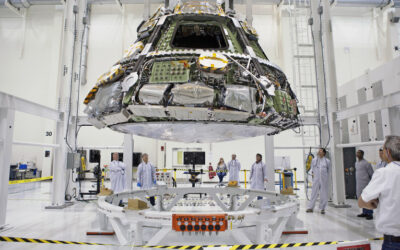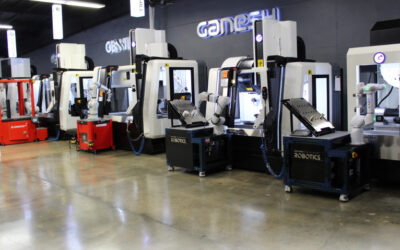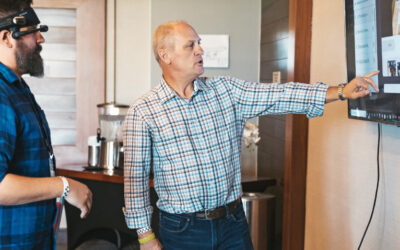While it might seem we are overstating the obvious, it bears repeating that when the connections are good, everything works and when they are not, nothing does. B3CG Interconnection, with contract manufacturing facilities in St.-Eustache, Quebec and Plattsburgh, New York, is dedicated to ensuring the cables and harnesses it custom manufactures make connections work.
~
B3CG Interconnection traces its roots back to 1993 and Orbtech Anjou, a Canadian company located in Quebec, which supplied cables to the communications sector until 2001 when it was acquired by Triton Electronik and relocated to Saint-Eustache, near Montreal. At that point, the company began a switch to the public ground transport and medical equipment sectors.
In 2008, five people working in the cable assembly division of the larger company pulled together, bought that division and named the new company B3CG, a name constructed from the family names of the five shareholders. It was made up of three Bs – then-President Stéfan Baumans (who has since left and been replaced by François Demers), Engineering and Business Development Vice President Marc Brosseau, Finance Vice-President Céline Brunet – with Operations Vice President Michel Croteau providing the ‘C’ and Daniel Guinta, who has also since left, adding the ‘G’.
That same year, B3CG Interconnect began operations in its new 40,000-square-foot plant in Saint-Eustache, specializing in the production of cable assemblies and harnesses – both simple and complex – as well as electrical, electromechanical and electrical connectors. All had production customized for original equipment manufacturers (OEMs) serving the needs of public ground transportation systems and the industrial sector.
In 2009, B3CG Interconnect opened a second 20,000-square-foot plant just across the Canada-U.S. border in Plattsburgh, in upstate New York, giving the company the distinct advantage of being able to supply American OEMs with cables and harnesses custom-designed and manufactured in the U.S. while avoiding complications should there be changes in the North American Free Trade Agreement (NAFTA). Between the two plants, there are just over three hundred employees.
Demers, who joined the company in 2014 as president and general manager, had previously served on its board of directors. “In my prior life, I was part of the Volvo organization, which is an organization I know quite well, so I was more than pleased to part of that venture with B3CG,” he shared. One of B3CG’s clients, Nova Bus, also located in Saint-Eustache and Plattsburgh, is part of the Volvo Group.
In 2017, another Focus Media Group publication featured the commitment of Nova Bus toward reducing greenhouse gas emissions through a pilot program that introduced fully electric buses in Montreal. These buses use OppCharge charging stations manufactured by the Volvo group. (See “Reducing Emissions from City Transit Systems,” Business in Focus, April 2017, Vol. 1).
“By being involved in all the electrical systems, we are highly collaborating with Nova Bus in their project,” Demers said. “But we are also very close to everything that is done in the province of Quebec regarding the electrification of vehicles and with all of the other projects that are in the public sector (including Quebec Hydro). We strongly believe that is the way to move in the future and that electrifying everything will contribute toward making the air cleaner, making a cleaner environment.”
B3CG Interconnect also partners with OEMs in Europe and Mexico as well as across Canada and the U.S. It has emerged as a leading manufacturer in its field, not only because of the superior quality of its product and its customized approach but because of the cutting-edge manufacturing trends it has adopted.
Rather than producing a ‘one-size fits all’ cable product which never works unless costly adjustments are made after the fact, the company works with each client to design innovative solutions, tailored to their exact specifications.
Not only does it work hand-in-hand with each client in the design phase, it uses a cell-based approach throughout the entire process. “Since we have a wide base of customers and they are all different from one to the other,” Demers explained. “What we’re doing is creating dedicated teams per type of product and per type of customer, so we create a cell of people, and they work seamlessly in a cell approach to ensure that we are delivering the agreed upon expectation to the customer,” he said.
“Each customer is equally important. It’s not as if you’re a big customer and get special treatment. We use the same approach no matter what size, big or small. So, when a customer calls, they will have a dedicated person at B3CG who won’t ever be busy with another customer.”
The company also has a strong commitment to quality and maintains, “a culture of continuous improvement. For us, quality is part of our trademark. We’re very keen on this and think it’s highly important to deliver a quality product to our end customer. So when you look at things like poka-yoke, (a Japanese term for ‘inadvertent error prevention’) it’s all about the tools we’ve embedded to ensure those errors don’t happen in the assembly stage.”
While specialist engineers and “highly technical people build the recipe before we start to manufacture the product,” Demers explained how the cables and harnesses ranging in length from eight to forty-eight feet are assembled manually by workers possessing dexterity and the ability to read the complex drawings. “We want to prevent errors in productions lines, so putting tools in place to help people avoid mistakes in production is key.” Some of the huge cables can take from eight to ten hours to assemble with three or up to six workers on the line.
In keeping with lean manufacturing trends, B3CG has also adopted the ‘just-in-time’ approach, “so we are building as the need arises, and we are shipping every day,” said Demers.
“We’re a growing organization,” he continued, “highly focused on quality, highly professional and very customer-oriented. As a contract manufacturer, we are always trying to put innovation in the customer’s product, so we can improve what they’re doing. We sell our know-how, which is why it is important for us to create long-term partnerships with customers. We don’t take single orders, you can’t just call us and order a single order of cable to ship and go. This is not the type of customer we are looking at.”
As Demers explained, “We are looking at long-term partnerships; someone we’ll be with all the time. We depend on each other in a true partnership, and we work very closely together. In fact, we speak with our partners almost on a daily basis. That’s how important they are to us.”
The bottom line is that B3CG Interconnect is not about selling a product; it is about sharing knowledge and expertise. When its partners succeed, B3CG succeeds.

